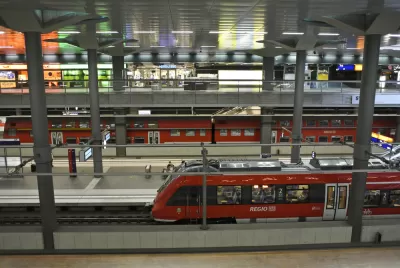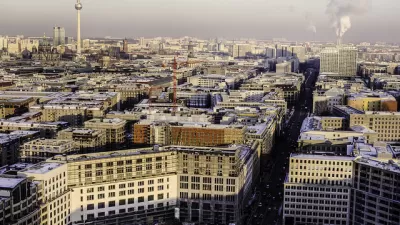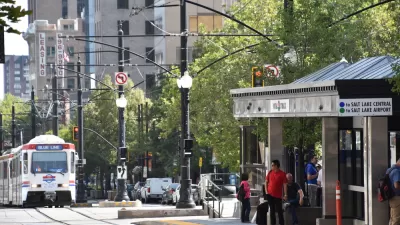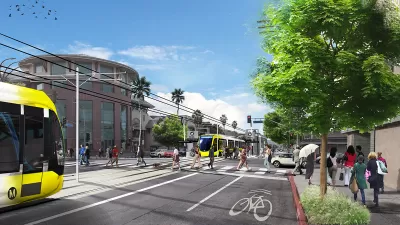Berlin is committing to a huge investment in its public transit infrastructure. Kiwi-living-in-Berlin author and lawyer Leah Hamilton writes about it.

Berlin will spend $31 billion through 2035 on its public transit system. That’s more than many countries. The biggest changes will happen very fast—by 2023—through an expansion of its urban rail network. Studies have shown Germans prefer rail over bus lines. There will be extensions to both the underground (U-bahn) and above ground (S-bahn) light rail lines. As for buses, the system will be converted to mostly electric by 2030. The investment will also ensure that public transit is fully accessible for disabled persons. The major transit authorities involved include Deutsche Bahn (DB) and Berliner Verkehrsbetriebe (BVG).
Previously, Berlin had lagged other German cities in transport infrastructure. However, with a booming economy and growing population, there has been a popular push to fund public transit improvements. Politics, always important when it comes to transit, have also aligned for transit. Notes Hamilton:
The reason behind these changes is partly due to the presence of the Green Party, SPD, and Die Linke in Berlin’s governing coalition, with all three parties in favour of making Berlin a greener, more accessible city. As part of this effort, political support is soundly behind the improvement of the public transport system as a whole.
For more details and images about what Berlin has planned, please see the source article.
FULL STORY: Berlin’s Huge Push to Improve Public Transit

Alabama: Trump Terminates Settlements for Black Communities Harmed By Raw Sewage
Trump deemed the landmark civil rights agreement “illegal DEI and environmental justice policy.”

Study: Maui’s Plan to Convert Vacation Rentals to Long-Term Housing Could Cause Nearly $1 Billion Economic Loss
The plan would reduce visitor accommodation by 25% resulting in 1,900 jobs lost.

Planetizen Federal Action Tracker
A weekly monitor of how Trump’s orders and actions are impacting planners and planning in America.

Waymo Gets Permission to Map SF’s Market Street
If allowed to operate on the traffic-restricted street, Waymo’s autonomous taxis would have a leg up over ride-hailing competitors — and counter the city’s efforts to grow bike and pedestrian on the thoroughfare.

Parklet Symposium Highlights the Success of Shared Spaces
Parklets got a boost during the Covid-19 pandemic, when the concept was translated to outdoor dining programs that offered restaurants a lifeline during the shutdown.

Federal Homelessness Agency Places Entire Staff on Leave
The U.S. Interagency Council on Homelessness is the only federal agency dedicated to preventing and ending homelessness.
Urban Design for Planners 1: Software Tools
This six-course series explores essential urban design concepts using open source software and equips planners with the tools they need to participate fully in the urban design process.
Planning for Universal Design
Learn the tools for implementing Universal Design in planning regulations.
Caltrans
Smith Gee Studio
Institute for Housing and Urban Development Studies (IHS)
City of Grandview
Harvard GSD Executive Education
Toledo-Lucas County Plan Commissions
Salt Lake City
NYU Wagner Graduate School of Public Service





























